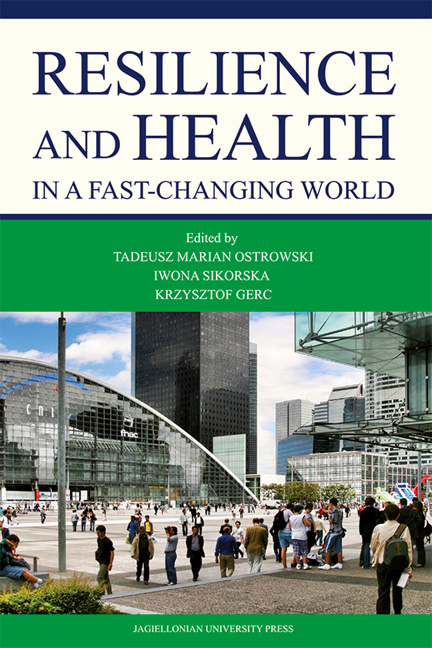Book contents
- Frontmatter
- Table of Contents
- Resilience from a Variety of Theoretical Perspectives: an Introduction
- I RESILIENCE IN THE PHILOSOPHICAL AND THE EXISTENTIAL CONTEXTS
- II SOCIAL CONTEXTS OF RESILIENCE
- III PROMOTING OF RESILIENCE AND ASSISTED RESILIENCE
- Improving the Socio-Emotional Health of Young People in Early Secondary Education: Preliminary Findings from a Study of the Pyramid Intervention Project
- Brave Children: How to Develop Resilience in Childhood
- Using Music to Stress Reduction
- Mental Health in Acceptance and Commitment Therapy (ACT)
- The Crisis of Adolescence in the Context of Resilience – Positive Prevention
- IV THREATS TO MENTAL HEALTH
- List of Authors
Improving the Socio-Emotional Health of Young People in Early Secondary Education: Preliminary Findings from a Study of the Pyramid Intervention Project
from III - PROMOTING OF RESILIENCE AND ASSISTED RESILIENCE
Published online by Cambridge University Press: 12 January 2018
- Frontmatter
- Table of Contents
- Resilience from a Variety of Theoretical Perspectives: an Introduction
- I RESILIENCE IN THE PHILOSOPHICAL AND THE EXISTENTIAL CONTEXTS
- II SOCIAL CONTEXTS OF RESILIENCE
- III PROMOTING OF RESILIENCE AND ASSISTED RESILIENCE
- Improving the Socio-Emotional Health of Young People in Early Secondary Education: Preliminary Findings from a Study of the Pyramid Intervention Project
- Brave Children: How to Develop Resilience in Childhood
- Using Music to Stress Reduction
- Mental Health in Acceptance and Commitment Therapy (ACT)
- The Crisis of Adolescence in the Context of Resilience – Positive Prevention
- IV THREATS TO MENTAL HEALTH
- List of Authors
Summary
Abstract
The incidence of emotional disorders in children and young people is an escalating concern. Research suggests poor emotional health in adolescence is related to many negative outcomes including lack of school adjustment, poor academic performance and reduced life chances. The Pyramid project (a school-based intervention programme currently implemented in England, Wales and Northern Ireland) aims to improve the socio-emotional well-being (SEWB) of vulnerable young people. Previous studies with primary school children (aged 7–8 years) have demonstrated the positive impact of Pyramid programmes on vulnerable children's socio-emotional health (Ohl et al., 2008, 2012, 2013). This study aims to examine the impact of the Pyramid intervention on the socioemotional well-being of pupils in early secondary education (aged 11–13 years) and to explore how programmes bring about change. The impact of the Pyramid project on 28 early-adolescent students was examined through a mixed methods design including the Strengths and Difficulties Questionnaire (SDQ) (Goodman, 1997, 1998) and focus groups with Pyramid group participants and Club leaders. Results from the teacher-rated SDQ demonstrated improvements in the Pyramid intervention group's socio-emotional competencies compared to a comparison group. A thematic analysis of the qualitative data collected from focus groups supported the quantitative findings and identified potential causal mechanisms facilitating change. Further research is required to replicate these preliminary findings with a larger cohort and to provide evidence-based practices for enhancing young people's socio-emotional well-being. Moreover, these findings support extending the research to examine the impact of Pyramid on young people's school performance. Findings have the potential to underpin evidence-based policy and practice in the early adolescent population.
Key words: adolescents, Pyramid project, school-based intervention, socio-emotional health
Child and adolescent mental well-being is a major public health concern recognised by the United Kingdom (UK) government and attention needs to focus on early intervention to prevent the entrenchment and increasing severity of problems (House of Commons Health Committee (HCHC), 2014): “To build resilience, promote mental health and well-being… we need to prevent mental ill health, intervene early when it occurs” (Department of Health, (DH), 2012, pp. 6–7).
- Type
- Chapter
- Information
- Resilience and Health in a Fast-changing World , pp. 109 - 120Publisher: Jagiellonian University PressPrint publication year: 2015



